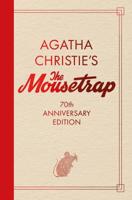Publisher's Synopsis
Excerpt from The Dramatic Works of Molière
This is very discriminating praise of Moliere's play. In all the scenes which F ielding has imitated from Moliere, he has nearly literally followed him. The chief difference is that, in Fielding's play, the servant man and maid have more scenes allotted to them than in the French comedy that the maid, Lappet, in connivance with Mariana, succeeds in getting a bond of ten thousand pounds from Lovegold, the miser, to be forfeited. In case he should refuse to marry the young lady: that the latter frightens him, by giving the most extravagant orders to different tradesmen, who make their appearance, and by ordering a repast on a most elaborate scale; that, finally, Lovegold endeavours to bribe Lappet to swear a robbery against Mariana, who, like a regular English girl, has far more Spirit, and is far more active - I would nearly have said is more intriguing - than her French prototype. It has been justly said of Fielding's Miser that it has the value of a copy from a great painter by an eminent hand.
The Miser has been translated by Michael de Boissy, 1752, but it has never been performed.
Mr. Edward Tighe also made of Yhe Miser a farce in one act, whilst james Wild, prompter at Covent Garden Theatre, reduced it to three acts, and had it played in the year 1792.
About the Publisher
Forgotten Books publishes hundreds of thousands of rare and classic books. Find more at www.forgottenbooks.com
This book is a reproduction of an important historical work. Forgotten Books uses state-of-the-art technology to digitally reconstruct the work, preserving the original format whilst repairing imperfections present in the aged copy. In rare cases, an imperfection in the original, such as a blemish or missing page, may be replicated in our edition. We do, however, repair the vast majority of imperfections successfully; any imperfections that remain are intentionally left to preserve the state of such historical works.










